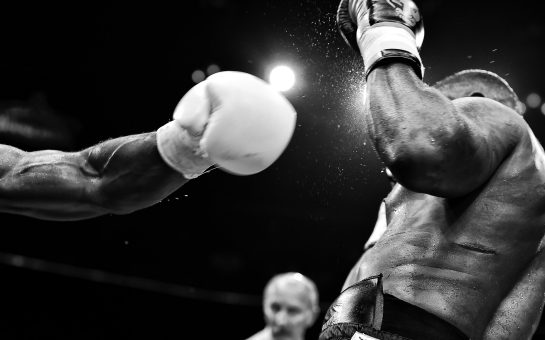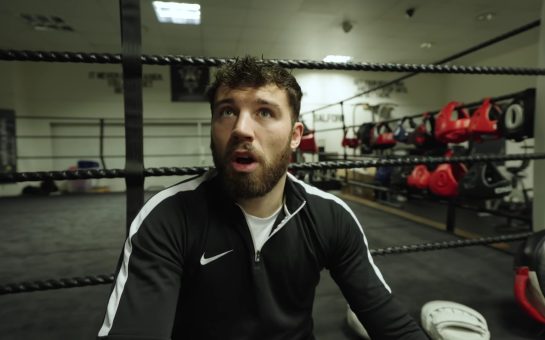“I had never known before, and might never again, such a heightened sense of being present at a moment so filled with impending drama.”
These words, told retrospectively by James Lawton, come from his new book A Ringside Affair: Boxing’s Last Golden Age, where he looks at a range of fights from the glory days of the sport.
Here he is looking prior to one of Muhammad Ali’s greatest victories: his win over Ernie Shavers in 1977.
But throughout the book he also looks at such boxers as “Iron” Mike Tyson, Tommy “Hitman” Hearns and ‘Marvellous” Marvin Hagler, to name just a few.
During his illustrious career spanning over 50 years, he had the pleasure of reporting on the greatest crop of fighters for the likes of the Daily Express and Independent, however only one person will ever stick out to him: Muhammad Ali.
My new book on the great days of boxing. https://t.co/t2mESsfuWS is gifting ten audio books to the first ten retweets… #boxing #hboboxing pic.twitter.com/nynSi2Wy2c
— James Lawton (@JimLawtonTweets) November 7, 2017
Speaking to MM it was undeniable what effect the fighter had on him and it was through Ali’s death that he ended up writing the book.
“I don’t think you will get a combination of his ability and his nature and his personality. It was quite complex in many ways.
“Ali was unique and in fact, as I said in the prologue of the book, it was in view of his death that made me think about him and all the years I spent at ringside.
“Unlike some of my senior colleagues like Hugh McIlvanney and Colin Hart and people who had seen much more of the story, I tried to make it clear in that sense that I was a real late-comer to the Ali story but I felt it.
“I felt it in the first fight against (Ernie) Shavers.”
After talking about that eminent crop of fighters, conversation invariably moved to the present-day group and whether any can replicate the heady heights of their predecessors.
The former SJA Sportswriter of the year played down Anthony Joshua’s chances.
“I think Anthony Joshua’s problem is how do you define yourself?
“There’s no Joe Frazier out there, there’s no Sonny Listons to knock off the pram.
“There’s no fine fighters coming up to challenge you.”
That context however may come in the form of WBC champion Deontay Wilder.
The unbeaten American is currently 39 and 0 and his knockout of Haiti-born Bermane Stiverne has only improved his stock.
Despite the enticing prospect of the two coming head-to-head, it is Wilder’s progress which has brought up another problem which James thinks may only get worse.
After Wilder’s unanimous points victory over Stiverne in 2015 it had been nine years since an American was world heavyweight champion.
“I think it is very eloquent because in the old days kids came out of the ghettos and there was so much small, athletic talent coming in to boxing.
“Now they would rather play baseball and basketball and who would blame them?
“Boxing has lost that central American presence which was always crucial to the magnetism of the sport.”
Wilder admitted in 2008 that rather than become a boxer he dreamt of playing baseball or basketball.
Speaking to TODAY.com, he confirmed that it was due to the birth of his daughter, who suffers from spina bifida, a birth defect in the spinal chord, which forced him to attend Shelton State Community College and pursue a career in boxing.
This idea that boxing has become like a business is not a new one, with profit always being linked to the sport. However its rise in recent years may come to the detriment of the fans.
In an interesting anecdote, Lawton highlighted a key moment in his career which took place in the pre-match conference of Joe Calzaghe and Will McIntyre.
The fight against the relatively unknown McIntyre was on the undercard of Mike Tyson-Brian Nielsen, with many questioning the reason behind the fight.
It in turn sparked Lawton to ask Calzaghe: “Why aren’t you fighting (Bernard) Hopkins or Roy Jones?”
Calzaghe replied: “Don’t you understand it’s a business?”
“I think that was a very telling comment which I never forgot really,” added Lawton.
However, the enchantment of a man who puts his body on the line for glory, a subsequent reason for Ali’s death, still contains some romanticism for James.
Despite the growing issues in the sport, that element of two forces colliding beyond reason can always offer grounding for a new, possibly even greater generation to come along.
“It’s like quite a lot of things in life, you’re ambivalent and you can’t see it.
“Boxing is a physical business, it’s dangerous and that’s part of its fascination.
“Anyone who goes into the ring, steps through the ropes is by definition a brave man.”
Image courtesy of James Lawton via Twitter, with thanks.



